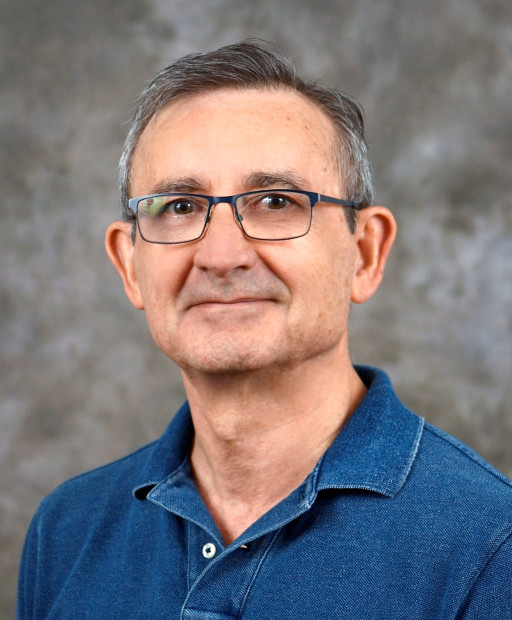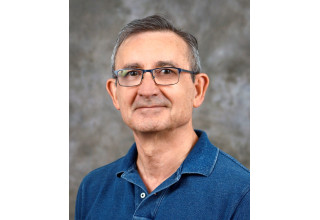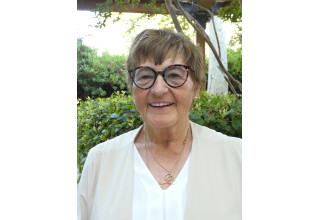CHARLOTTE, N.C., September 12, 2023 (Newswire.com) - After receiving widespread attention for demonstrating positive outcomes in Charlotte and other parts of North Carolina, the Caregiver Thrive, Learn, Connect (TLC) Program is set to make significant strides in supporting caregivers across the country. The program's remarkable success comes at a crucial time. Fifty-three million adults in the U.S. (21.3 percent) are caregivers, but access to affordable and coordinated services remains scarce.
Structured for Success
The research phase of the program, spearheaded by UNC Charlotte and supported by generous funding from Southminster, began in the Charlotte area in Spring 2021 and released findings in Summer 2023. It offered free online workshops and support to adults providing care to people with memory loss, dementia, or chronic illness. Caregivers completed six weekly sessions led by trained facilitators through video conferencing. The workshops were designed to teach coping skills caregivers need to deal with stress, depression and burden, as well as strategies to improve quality of life.
Background
It took years of dedicated bi-coastal collaboration to develop and test the efficacy of the program with a goal of making it free and accessible for anyone caring for a loved one with a chronic condition or significant memory impairment.
--Dr. Dolores Gallagher-Thompson, Stanford University, developed the original program called Coping with Caregiving about 20 years ago. The program was successfully offered to individual and small groups of caregivers in person.
--Principal Investigator Dr. Julian Montoro-Rodriguez at UNC Charlotte adapted the Coping with Caregiving program to be delivered fully online over Zoom meetings to become the Caregiver TLC educational free workshop in response to the needs of caregivers during the COVID-19 pandemic.
--Dr. Jennifer Ramsey, Caregiver TLC Project Coordinator at UNC Charlotte, managed recruitment of caregivers and facilitators, implementation of the program and assessments, among other tasks.
--Dr. Ann Choryan Bilbrey, CEO of the Optimal Aging Center, trained professionals to deliver the Caregiver TLC program, provided weekly facilitator consultation meetings, and tracked the fidelity of the program in the research protocol.
--Bruno Kajiyama, CEO of Photozig, Inc. applied the technology to deliver programs. The program website "https://caregivertlc.org" platform was developed by Photozig.
--Southminster, a non-profit Life Plan community dedicated to supporting research and healthy aging initiative, invested in the Caregiver TLC Program to enable the program to be offered free to caregivers in Charlotte and across North Carolina. As part of the team that helped recruit facilitators and educate the community about the program, Southminster promoted the research and helped make the program sustainable long term.
Clinical Implications
Data collected from the two-year research program shows that caregivers experienced a significant reduction in depression and stress and improved how they saw their role as caregivers. "There was a positive effect no matter whether those being cared for suffered from memory loss, dementia, or chronic illness," Dr. Montoro-Rodriguez said. "In addition, even though some people believe it makes sense to develop different programs for ethnic groups and minorities, this research program indicates that the same approach serves various ethnicities equally."
Another crucial aspect of the research is that it demonstrates that a psychoeducational program such as Caregiver TLC can be effectively delivered via technology. "This is crucial because many caregivers do not have time to travel and participate in workshops in person. Those in rural areas where there are no services at all can really benefit from virtual sessions," said Dr. Montoro-Rodriguez. "Although some caregivers may be relatively inexperienced with telehealth-type service delivery at the outset, they are able to learn enough to participate in this type of program and complete on-line questionnaires.
"In addition, we also found a way to actually make the program sustainable by working with community partners to embed it into their range of services (Jewish Family Services). We also expect that other members of the community advisory board and organizations will use the free program by training their own social workers or case manager professionals to deliver it," he said.
The Importance of Community Partners
Jewish Family Services was one of the two, diverse, non-profit partners that participated in the research phase of the Caregiver TLC program. Sheryl Gerrard, the organization's senior engagement manager, had done her certification in gerontology at UNC Charlotte when Dr. Montoro Rodriguez was the director of that program. He contacted her to be trained as a facilitator, and she was excited about the opportunity. "We had been offering a family caregiver support group, but this new psychoeducational program targeting caregivers was right in my wheelhouse," Gerrard said. "It was quite a learning experience with a pretty intense months-long process to make sure there was integrity and fidelity in the program, and that we were doing things correctly and understood objectives. I was trained as a Master Trainer, so now I can train people in our agency to facilitate groups also."
The hard work that contributed to the success of the research paid off quickly. Gerrard said she loved seeing the positive benefits in the results, and Jewish Family Services has already offered the program to new group, with plans to offer it to another group in the winter. "I think the biggest value is that it has a ripple effect. We have our own base of caregivers, and we work with many, many family members, so we can reach a whole different audience that might not have been connected through the university or Southminster. The program's themes such as stress coping and anger management are so universal across the caregiving experience. They can also be extended to support parents who have neurodiverse children, for example. The possibilities are inspiring."
The Frankie Mae Foundation in Charlotte was also a vital part of proving the efficacy of the Caregiver TLC program. Executive Director Venitra White-Dean served as a facilitator for six to seven caregivers who were already participating in Frankie Mae's own exceptional programs. All Caregiver TLC facilitators followed the same workbook during the weekly virtual workshops to ensure all training was uniform and consistent. Keeping each group small ensured caregivers could really get to know each other, learn from each other and share advice about what might work with someone you're caring for.
White-Dean said she learned as much as the caregivers in the training. "My mom passed away in 2020, and as I went through facilitating all the activities and practices to help caregivers cope, I wished this program had been available to help me in my own caregiving journey. I still use all the insights I learned in my daily life."
White-Dean says the Caregiver TLC program is invaluable because it's another piece of the puzzle in a community of ongoing resources. Through its monthly meet-ups, support groups and other activities, Frankie Mae is all about giving caregivers a safe space to share their challenges and not be judged. "We have plans to integrate Caregiver TLC into our regular programs. But even if caregivers are not involved in the services of the Frankie Mae Foundation, or don't go through Caregiver TLC, it's crucial they all reach out to someone and get help to cope."
Moving Forward
The Caregiver TLC program is now poised to benefit families far beyond its initial reach. Recognizing the diversity of caregivers across the nation, the program is currently being translated and culturally adapted for Latinos and Spanish speakers by UNC Charlotte in collaboration with other colleagues in the U.S. and Spain. "Since Latino caregivers have higher rates of dementia, we are moving forward with a goal of translating the program to serve Latino caregivers in the U.S. and other countries starting in the fall," Dr. Montoro-Rodriguez said.
"We are pleased with the outcomes of the online workshops and the opportunities for sustaining and growing the program. Our investment of charitable resources proved to be an effective way to create solutions to support caregivers, with a goal of improving not only their own well-being, but the lives of those they are caring for," said Southminster President/CEO Ben Gilchrist.
"This is a wonderful example of how innovative partnerships can accelerate work in developing evidenced-based programs of excellence that contribute to research on aging while improving outcomes for those doing the important work of caregiving," said Tracy McGinnis, Vice President of Philanthropy & Strategic Initiatives at Southminster.
As an evidenced-based program, Caregiver TLC now has the potential to be offered anywhere in the country, creating an even larger more supportive network of professionals and caregivers with like-minded goals of enhancing the lives of the millions who provide care to a loved one every day.
For more information, visit Caregivertlc.org
About Southminster
A leader in the field of aging, Southminster is a non-profit, charitable Life Plan Community, providing innovative living solutions to aging across a full continuum of care. Dedicated to overall well-being, Southminster embraces living life with purpose by valuing independence and privacy, inspiring creative passions, encouraging lifelong learning, and motivating each individual's plan for wellness to its highest potential. For more information on Southminster, please visit www.southminster.org.
Contact Information:David Jewell
The Jewell Agency
[email protected]
704-996-0165
Related Images
Original Source: Caregiver Thrive, Learn & Connect Support Program Enriches the Lives of Family Caregivers in North Carolina






